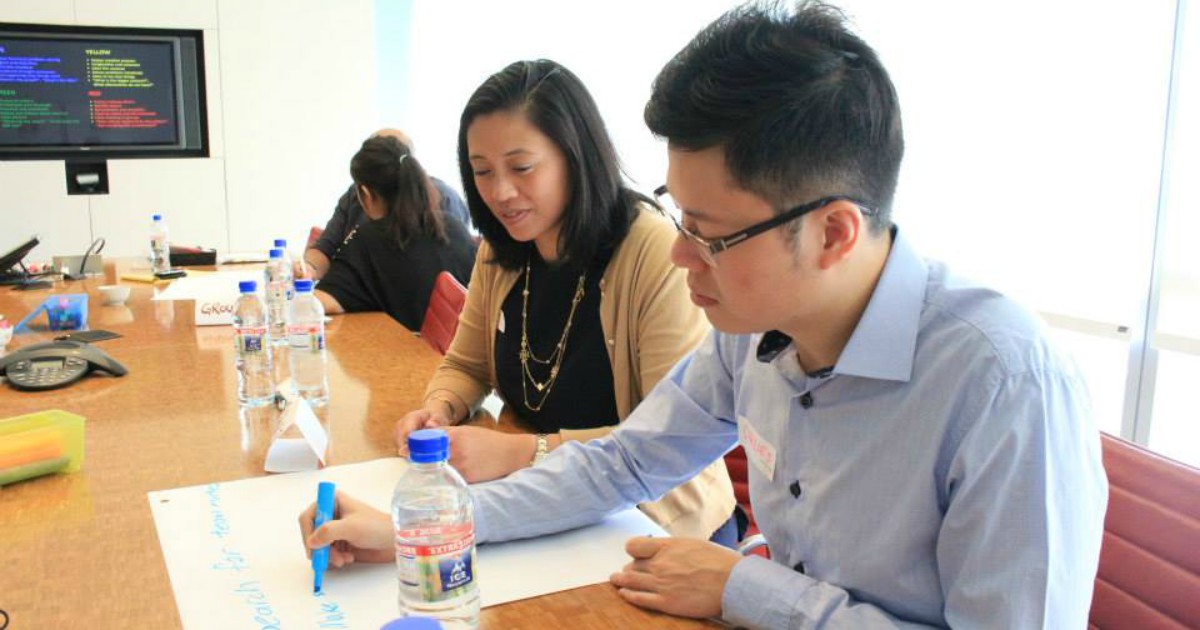[Updated for Singapore citizen population]
On 8 Jan, Channel News Asia published an article on the strong number of Singaporeans signing up Skillsfuture courses in a bid to up-skill themselves. Since the programme was introduced in 2016, more than 126,000 Singaporeans have already started utilising their credits, with 34% going back for more.
According to Mr. Martin Hill, Associate Director of local recruitment agency, Ranstad Singapore, locals are motivated by their desire to be more proactive at work. As such, an increasing number of them are difsplaying perceptiveness about the type of skills that will aid them in the long run.
Based on the people features on Skillsfuture SG’s Facebook page, it appears that the Skillsfuture programme has quite the promising future here in Singapore. There is also good news in that the programme’s course-demand fit hits all the right notes, notably in careers related to Informations and Communications Technology (ICT).
As Singapore strives towards becoming the world’s first Smart Nation, it gratifies me to say that Skillsfuture accounts for the rising public demand.
A quick search of their course directory with the keyword ‘ICT’ yields 43 results. In addition, Skillsfuture also touts a SkillsFuture Study Award that helps subsidise course fees.

But underlying the bright future the programme promises, there are a few issues that are decidedly turning locals away from picking up a course or two.
What Does 126,000 Signify?
Success aside, if you actually put the 126,000 numbers into perspective, it translates to an estimated 3.6% of the Singaporean population (based on a headcount of 3,408,900 as of June 2016). Considering the efforts gone into marketing Skillsfuture at residential estates, the take-up rate for courses remains surprisingly low.

One possible reason why marketing campaigns are not translating to a higher course take-up rate is because roadshows don’t have as much as appeal as they used to.
Or perhaps it is because Singaporeans simply do not have that vested interest in signing up for Skillsfuture courses.


Even if they consider that 126,000 is a successful number (considering that the programme is but a year old), the numbers do not serve as a particularly strong argument to persuade more people to sign up for courses.

It seems the hanging question here is, how exactly will a Skillsfuture qualification enhance my employability rate?

In terms of courses, we also see Singaporeans commenting on the lack of reviews about Skillsfuture courses, something which has yet to be addressed in the website. And with regards to adopting courses to learn how to make a career switch, the efficacy of that move, and its proven success rate, leaves us wanting.
Cheaper Options Available
When the Skillsfuture Credit Scheme was first announced, DPM Tharman assured that “SkillsFuture empowers all of us to go further“.
A quick scan through the directory of ICT courses however, yields me fees ranging from $160.50 for an introductory course to $116,400 for a a Bachelor’s degree. Courses in innovation reflects similar trends. Although $500 isn’t exactly a paltry sum, it does serve as a limiting factor, and having a little more would definitely go a long way.
In addition, for digital-savvy Singaporeans, these courses aren’t exactly the most price-friendly ones out there either.


When it comes to value-adding one’s resume with a well-curated self-enhancement courses, there are plenty of cheaper, and even free, courses out there. Coursera is one of the leading providers of online courses, as well as Udacity and Udemy.
It’s About Quantifying Success
Trawling through the Skillsfuture Facebook page, there are stories aplenty that translate to a degree of success.
However, taking employment quality aside, the current dismal economic climate puts the emphasis on quantity, i.e. the number of success stories, and how these courses can benefit all participants instead of highlighting the few who somehow managed to really shine.
While we take much solace in the fact that the number of Skillsfuture courses are steadily being boosted, these queries on how these courses quantifiably raise our employability rates remains unaddressed.
Featured Image Credit: right-impact








